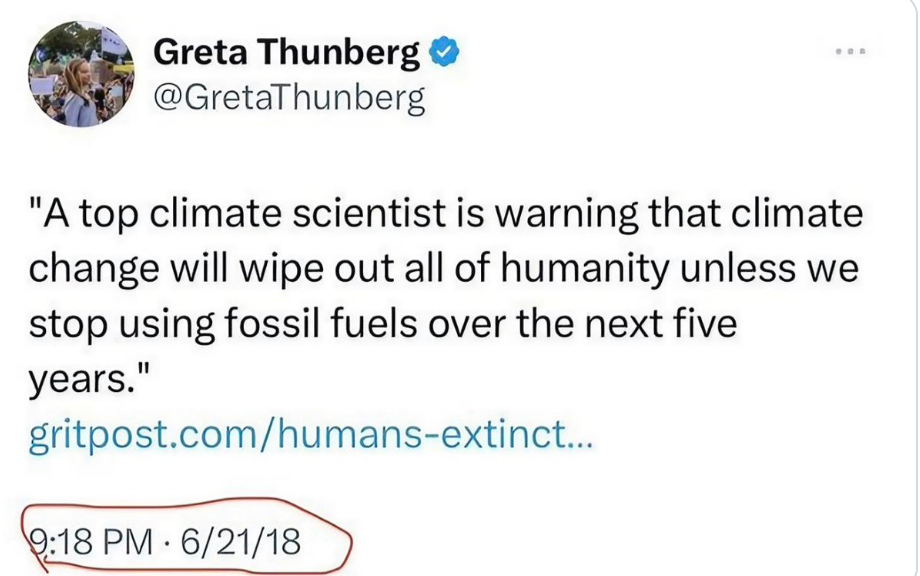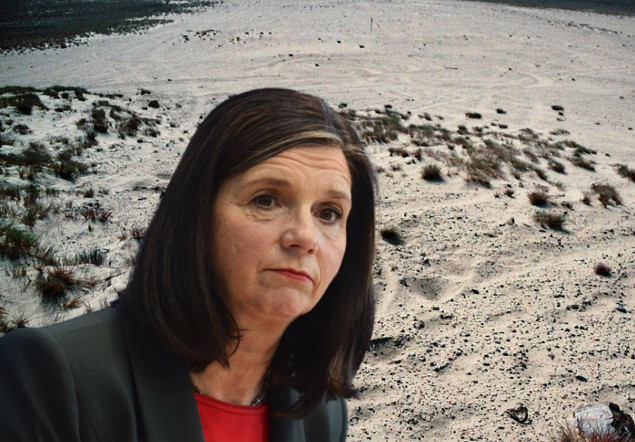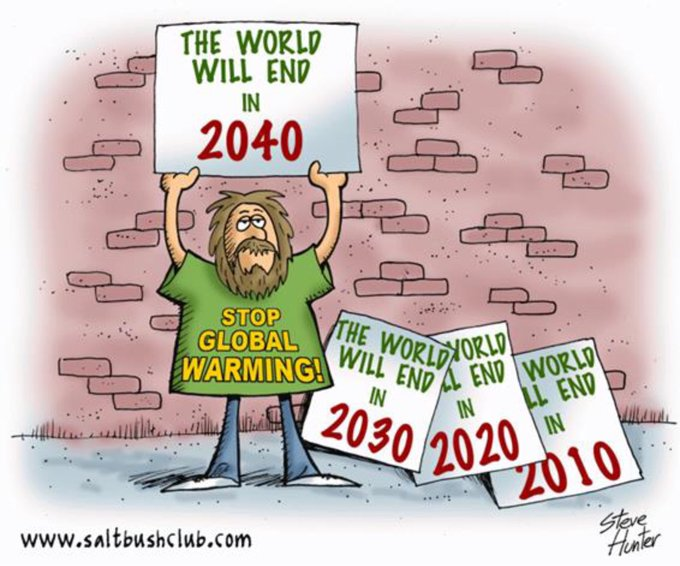Ladek Zdroj/Poland 06/24/2023
Entire blog as a free PDF eBook.
Five years ago we were given a specific date for the end of the world. On June 21, 1918, world-renowned environmental activist Greta Thunberg tweeted:

Fortunately, although “unknown perpetrators” removed the entry of this prophecy a few days before the predicted apocalypse, a copy of Cassandra’s warning survived. You can read about the motives behind Ms. Greta’s commitment to the fight for ecology in the article about climate sponsors. Because when Ms. Greta tells an expert only known to her based on her statements that it will be hot, it will be hot! Maybe she misjudged when the earth would burn, but if not today, then maybe in 10, 20, or 1,000 years.
We have already imagined the burning oceans – since 70% of the earth is water – caused by a few degrees increase in average temperature. Even red weather maps on TV at 25 °C stimulate our imagination. Surely you have received images of ecological destruction.

A week ago, Ms Göring-Eckhart raised the alarm on Twitter: 100 km west of Berlin, ecological change had created a desert. We can still take countermeasures (source). This desert actually exists to the west of Berlin and was created after the great forest fire in 1942. In GDR times, the area of this desert was used by the Soviets as a tank training ground. The name Panzer Desert is used by the locals to describe this area. Apparently any lie is good to convince people to give everything they have for the good of our planet. And it is our money that goes to the accounts of those who designed and implemented these climate protection measures.
The WEF – World Economic Forum – proposes in its May paper on page 16: A 75% share of public mass transport by 2030 and a 90% share of bicycle traffic at peak times by 2040.
The program is ambitious and deserves attention. The problem, however, is not the numbers themselves, but how these goals are to be achieved. Taking over 75% through mass transport means limiting private transport to 25%. The primary concern here is the voluntary and state control of all people who use public transport. In times of digitization of all possibilities, an individual ticket with a chip will certainly be created for each passenger, which entitles him to use mass communication media. For cost accounting, each section traveled by bus, plane, train or tram is recorded and a computer database is created with information on all movements of each resident.

Author of the article: Marek Wojcik
